Marble from Macael, Almeria province, Andalucia, Spain is famous for its Blanco Macael
By Nick Nutter | Updated 5 Mar 2022 | Almería | Villages |
Login to add to YOUR Favourites or Read Later
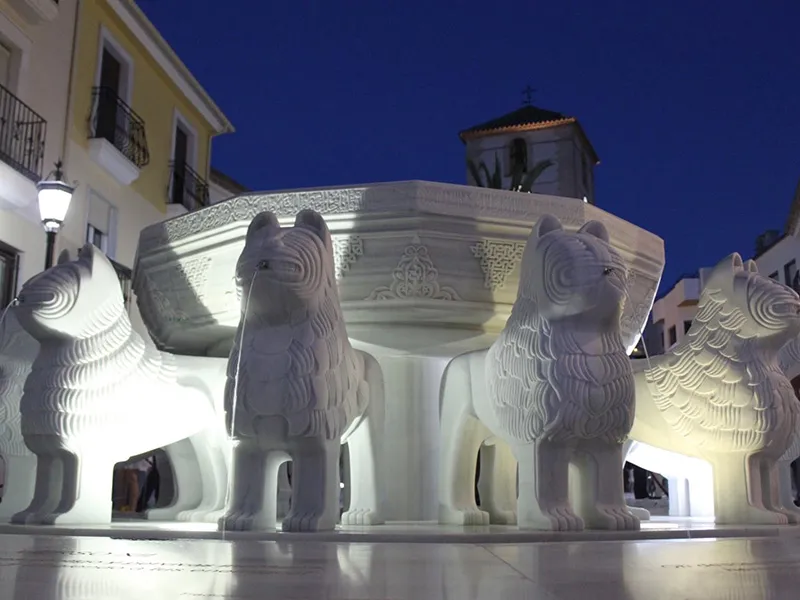
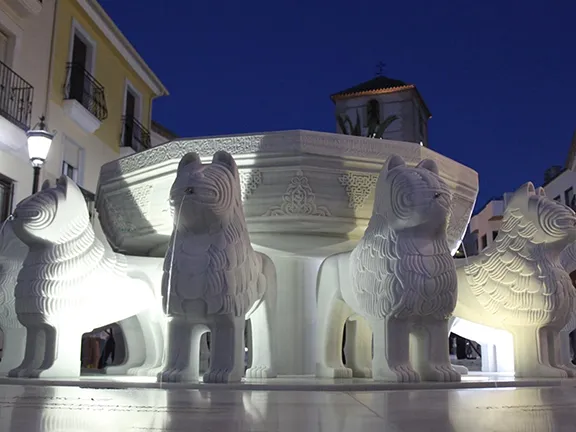
Macael marble in the court of lions Granada
The white marble of Macael is renowned the world over. Behind the town, situated in the northern foothills of the Sierra de los Filabres, are 6,700 hectares of open cast quarry from which marble of all hues is mined and taken to the huge Cosentino SL factory. There it is cut to size, polished and sent on its way by road and rail to destinations all over the world.
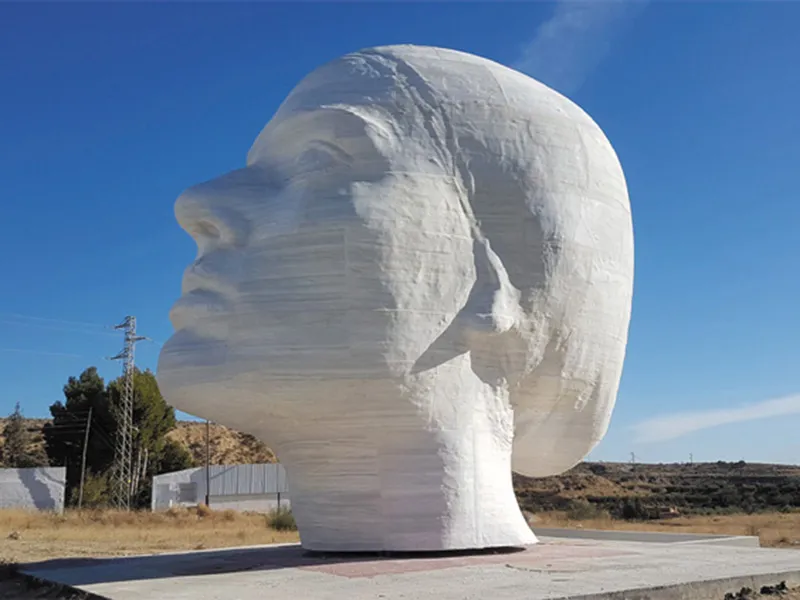
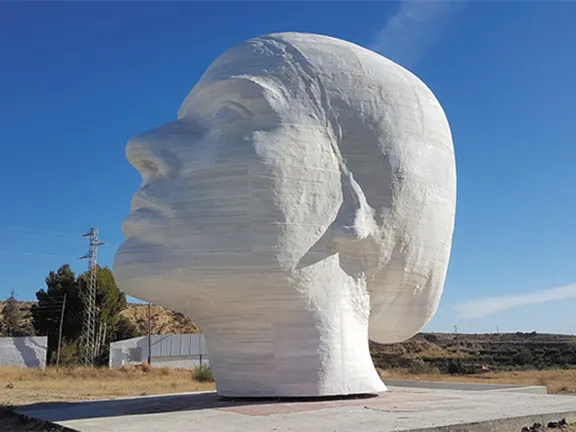
Largest marble sculpture in the world - Mother of Almanzora
Macael is a small town, its entire existence depends on the marble that has been extracted for over 4000 years. Neolithic people made small figurines from the pure white stone they found in the streams that flow off the Sierra de los Filabres. The Phoenicians made coffins from it and the Romans used Macael marble in the amphitheatre at Merida and in the city of Italica in Seville. It was the Muslims that started quarrying on a large scale. They used it in the Medina Azahara Palace in Cordoba and in the Lion’sCourt in the Alhambra at Granada. Since then Macael marble has been used in El Escorial monastery and the Royal Chapel of the Catholic Monarchs in Granada during the 16th century and the Royal Palace in Madrid during the 18th, but it was the opening of the Almanzora railway in 1895 that gave Macael its chance.
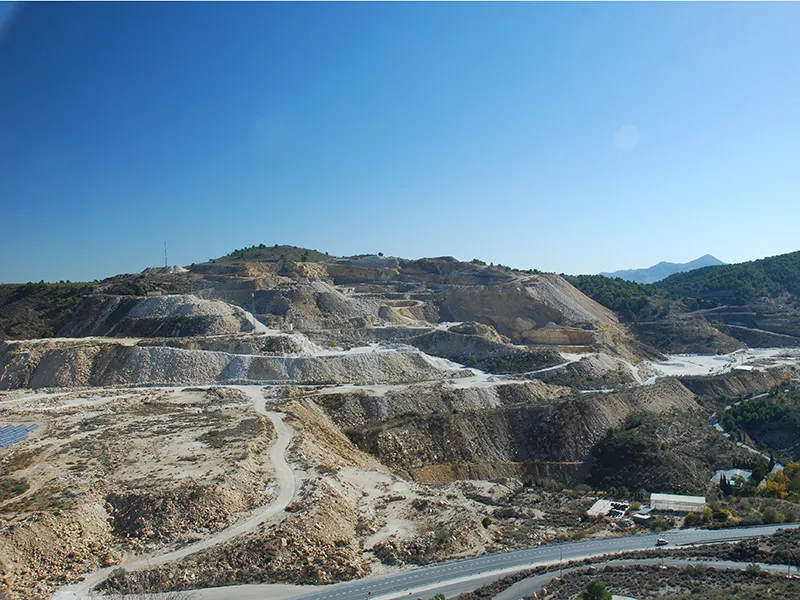
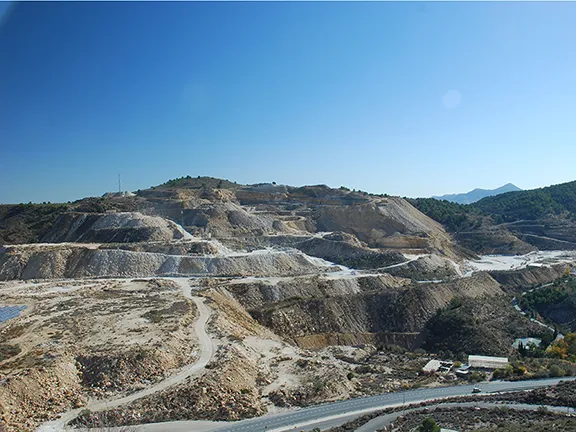
Mirador Consentino Macael
During the 19th century, the whole process of extraction, cutting, sawing and polishing the marble was mechanized. In 1836, Macael opened the first factory in Spain capable of sawing and jointing stone. The marble became more accessible to normal people. Today you will find it, not just in castles and mansions, but in everyday homes where it can be as utilitarian as a kitchen counter or floor tiles, to exquisite sculptures.
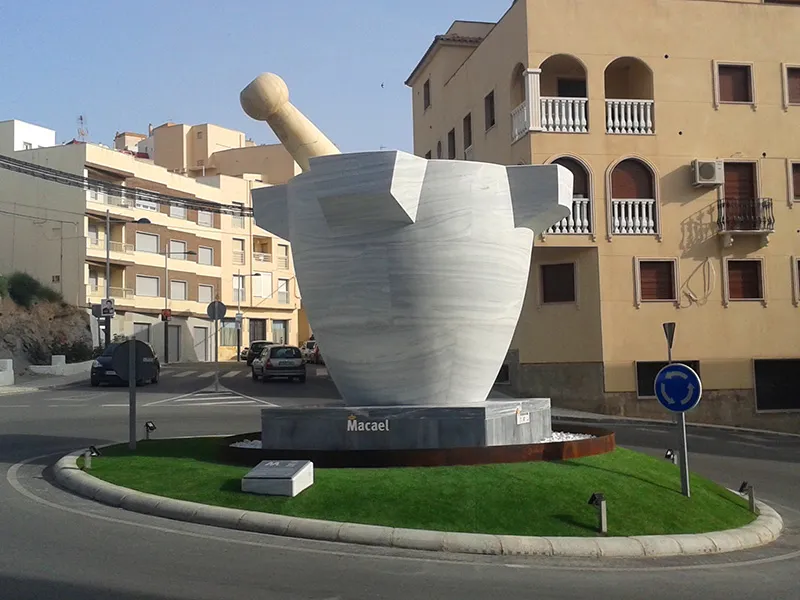
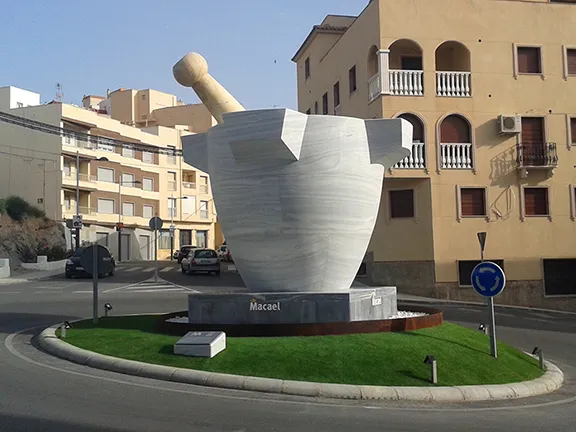
Largest mortar in the world - Macael
The white marble is known as Blanco Macael but there are also other types, just as beautiful, Grey marble (Gris Macael) and Anasol. These are all calcitic marble. Then there are the dolomitic types, Yellow marble (Amarillo Macael). The quarries also produce serpentine marble called Verde Macael or Verde Almeria normally used for ornamental purposes. There are in total 30 varieties of marble produced in the area bounded by Macael, Lijar, Chercos, Cobdar, Lubrin, Purchena, Olula del Rio and Cantoria.
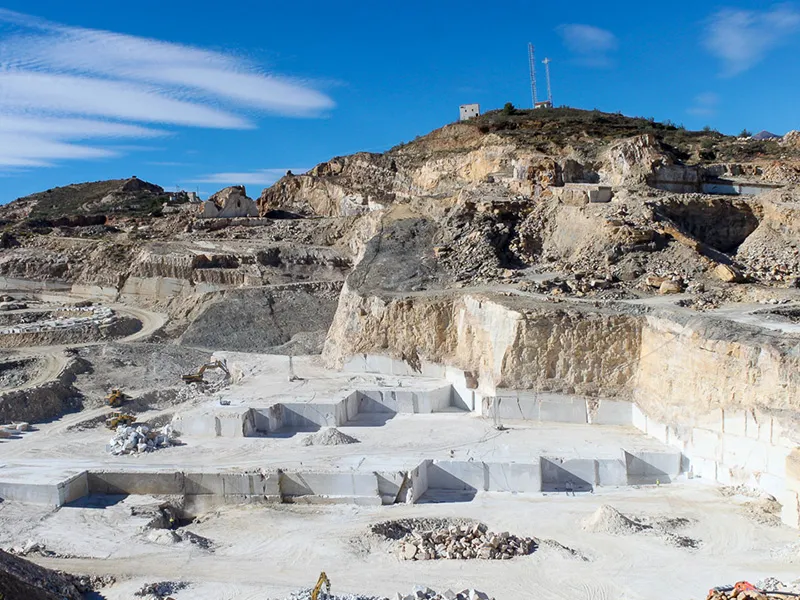
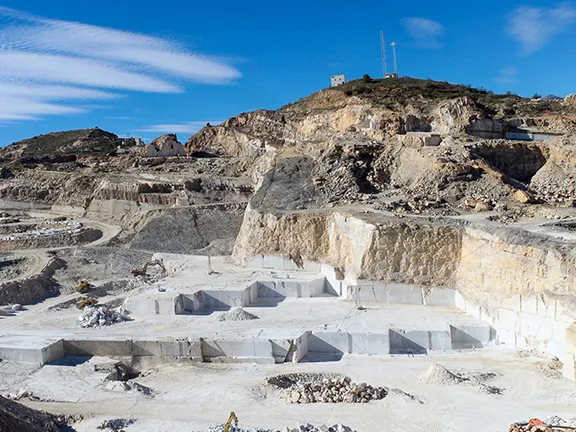
Blanco Macael in the ground
It is difficult to appreciate the scale of the quarrying operation until you visit the Mirador de Cosentino a few kilometres outside Macael that affords a birds eye view of just a couple of the six concessions. Macael is the second largest marble producer in the world with an output of 1.8 million tonnes per year. Over 200 businesses employ somewhere in the region of 5,500 workers.
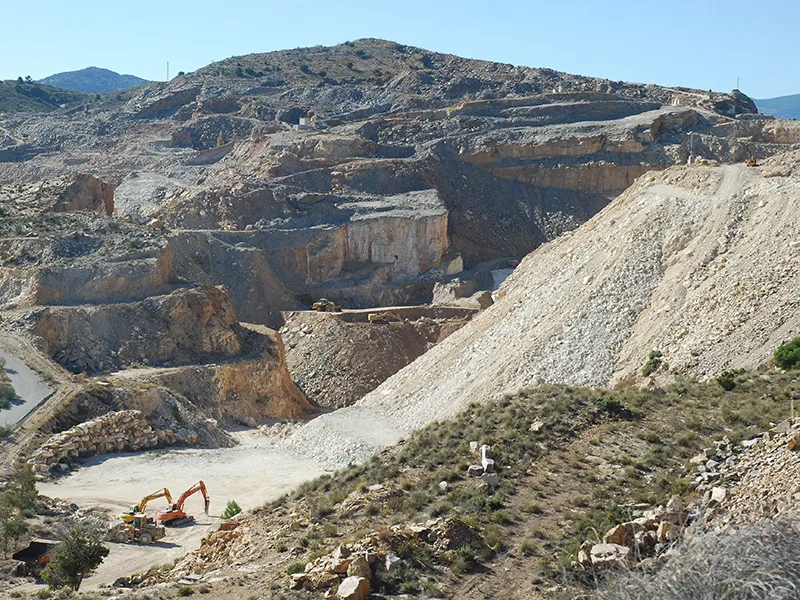
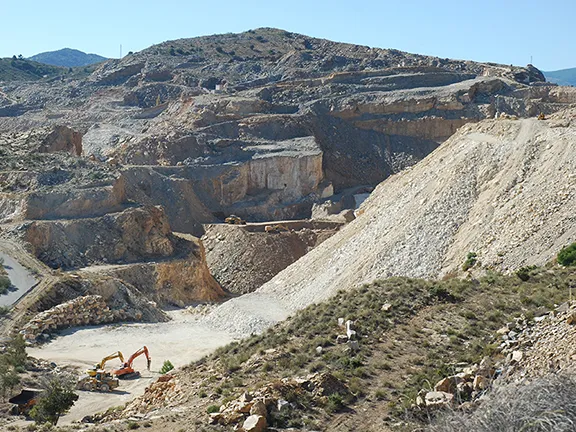
Marble quarry Macael
Whilst the industrial giants of Consetino and Tino are very evident in the region, there are lots of smaller businesses, even individual craftsmen, all dedicated to the marble industry. As a result there are shops in the major cities in Spain and as far afield as London, Munich and Dubai selling ornaments and sculptures made from Macael marble. It finds its way to France, Japan, China and Russia where it is used in elaborate construction projects. You will even find it in the headquarters of a major telecommunications company in Kansas.